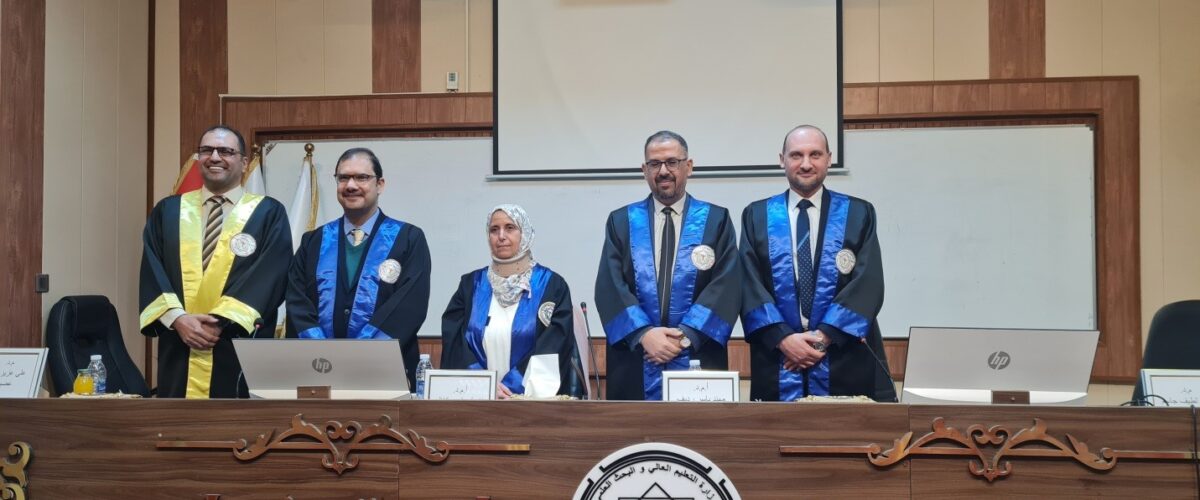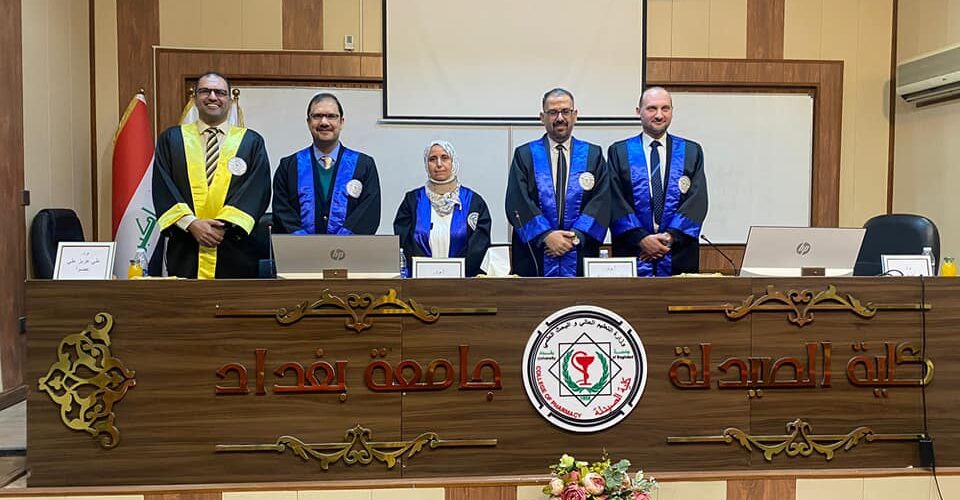The Faculty of Pharmacy discussed the master degree thesis titled ((Determining prevalence of urinary tract infection pathogens and their antibiotic susceptibility profile and assessing the validity of empiric treatment practice)) by the student Bashar Ghazi Abdul Shaheed and his supervisor, Dr. Ali Lateef Jasim in the Clinical Pharmacy Department. The thesis aimed to explore the prevalence of pathogens responsible for UTIs in adult patients and their antimicrobial susceptibility patterns, and to assess the validity of UTIs empiric treatment practices of physicians. The thesis included a quantitative phase to determine the prevalence of uropathogens and their antimicrobial susceptibility pattern. It included a convenience sample of laboratory records of adult outpatients who had visited tertiary public hospitals in Al-Diwaniya city for twenty-six months. The gender, age, urine culture, and bacterial antimicrobial susceptibility test, were collected. The qualitative study was performed to evaluate the adherence of prescribers to the guidelines for UTI treatment when prescribing empiric antibiotics. This phase involved interviews that were semi-structured and conducted directly face-to-face with purposeful sample of specialists who were prescribing antibiotics for patients with UTI and working at public and/or private sectors in Al-Diwaniya city. The number of patients’ records was 256 and majority of records were for female patients (79.7%). The predominant organisms’ isolates were Staphylococcus spp. (39.1%), E. coli (35.2%). The resistance profile of Staphylococcus spp. had a high resistance to ampicillin (92.9%) followed by ceftazidime (87.5%), while being sensitive to vancomycin. E. coli was highly resistant to ampicillin (97.9%), and ciprofloxacin (64.5%), while was fully susceptible to fosfomycin. The qualitative study sample included 7 urologists, 7 gynecologists, 6 internal medicine specialists, and one nephrologist. Several themes were developed from the qualitative findings of this study. The featured themes showed that all physicians prescribed an inappropriate UTIs’ empirical treatments, the majority were relying on their experiences in their practice, and the top leading barrier explained by the majority of participants was medication shortage, while the featured suggested solution were an effective antibiotic stewardship program to be conducted in both settings, public and private. The results showed an incline in uropathogens resistance in Al-Diwaniyah city and there was a high inappropriate prescribing rate of empirical treatment of UTIs. They also showed that resources deficiency and patient preferences were the most frequently reported barriers by participating physicians and that majority of physicians suggested the necessity of effective antibiotic stewardship programs for healthcare providers.




